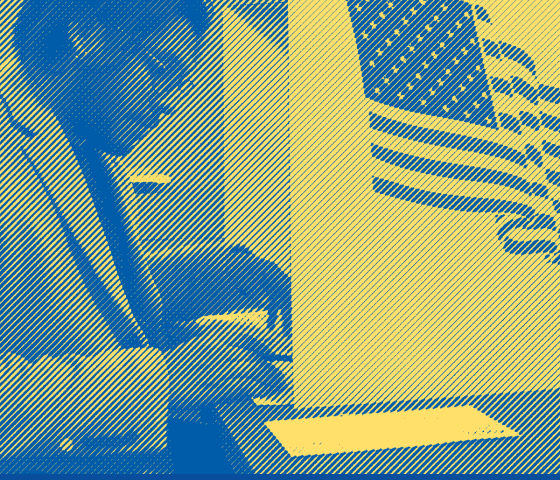What kinds of cases does the ACLU of Iowa take?
Because we have a focused legal program, we stick to our core mission of defending constitutional rights and liberties. We seldom take cases that involve a large number of unrelated factual disputes. Most cases that we take involve the government in some way--private disputes seldom involve questions of basic constitutional rights. If your complaint is only against a private party, such as your employer, you may not have a civil liberties claim and should immediately seek alternative sources of assistance. Moreover, many claims are time-limited. If you do not seek the advice of a lawyer promptly you could forfeit your right to sue.
Cases that we often accept:
- Freedom of speech and expression
- Censorship by or under government authority
- Freedom of religion or governmental establishment of religion
- Searches involving a question of law or having a wide impact
- Personal privacy and autonomy
- Reproductive choice and freedom
- Systematic due process violations
- Rights of persons accused of a crime
- Rights of persons held in custody or convicted of a crime
- Equal protection under the law
- Rights granted by the Iowa Constitution
- Specific acts of governmental abuse and misconduct
- Enforcement of democratic rights
- Discrimination based on sexual orientation or cutting edge claims
- Rights of access to public records
- Student, and parental rights
- Freedom from surveillance and the right to use countermeasures
- Freedom of travel
- Access to public forums
- The right of access to the courts, and to effective remedies
- The right to enjoy and defend property
- Protection of traditional common law rights of individuals
- Issues of federalism & maintenance of checks and balances
- Referrals from attorneys
Cases that we are unlikely to accept:
- Employment disputes
- Routine discrimination claims (i.e., those based on established law)
- General harassment by law enforcement and other agencies
- Suspected conspiracies
- Domestic relations disputes
- Child custody, child support, child abuse, and delinquency cases
- Criminal defense work
- Routine immigration cases
- Disputes with private persons or entities
- Grievable prison issues
- Failure of an agency to follow its own rules
- Stupid decisions by elected officials and bureaucrats
- Landlord/tenant disputes
- Welfare entitlement cases and government benefit disputes
- Environmental issues
- Criminal searches involving only a dispute of fact
- Cases arising outside the State of Iowa
As you can see, we prefer to take cases that present a well-defined civil liberties issue.
How can I get legal advice?
The ACLU Foundation of Iowa Legal Program can only give legal advice to those who have become its clients. Unless you have signed a retainer agreement with us you must seek legal advice through an attorney of your own choosing and at your own expense.
Can you tell me if I have a good case?
When we review a case we are looking not only for legal merit, but for other things that would make a case a worthwhile investment for our limited resources. We do not take cases that are primarily factual disputes, have little bearing on the rights of others or do not involve a civil liberties issue. Our failure to take a case does not necessarily mean we think it lacks legal merit. This is a question that can only be answered by an attorney.
Who reviews requests for assistance?
Requests for legal assistance are often screened by lay staff and volunteers who report to and work under the direction of our lawyers. Their response, if any, to you should not be interpreted as a legal opinion.
Are my communications with the ACLU legal program private?
Yes, we regard all requests for assistance to be an attempt to communicate with our lawyers for the purpose of obtaining legal assistance. Any information that you provide us in pursuit of that goal is covered by the attorney-client privilege and obligation of confidentiality.
Why haven't I heard back from the ACLU about my legal complaint?
Unfortunately, we do not have the staff or trained volunteers necessary to respond to all of the email, phone calls and letters we receive. If you have tried to reach us it is likely that we have read your letter or email or heard your phone message. However, unless we have a specific reason to respond, you might not hear from us.
What is case "sponsorship?"
When we accept a case, we generally act as a “sponsor” of the litigation. That means that the ACLU of Iowa will attempt to recruit a volunteer attorney to handle the case, and will pay the ordinary costs of litigation.
Is the ACLU Foundation of Iowa Legal Program supported by taxes?
No, we are supported by private donations.
How do I become an ACLU of Iowa client?
If the ACLU of Iowa decides that your case would be good to take on, the Legal Director will provide you with a written retainer agreement. When both you and the legal director have signed the retainer agreement you will be considered to be a client of our legal program.
Do ACLU of Iowa clients have to pay fees?
No. Our services carry no charge.
